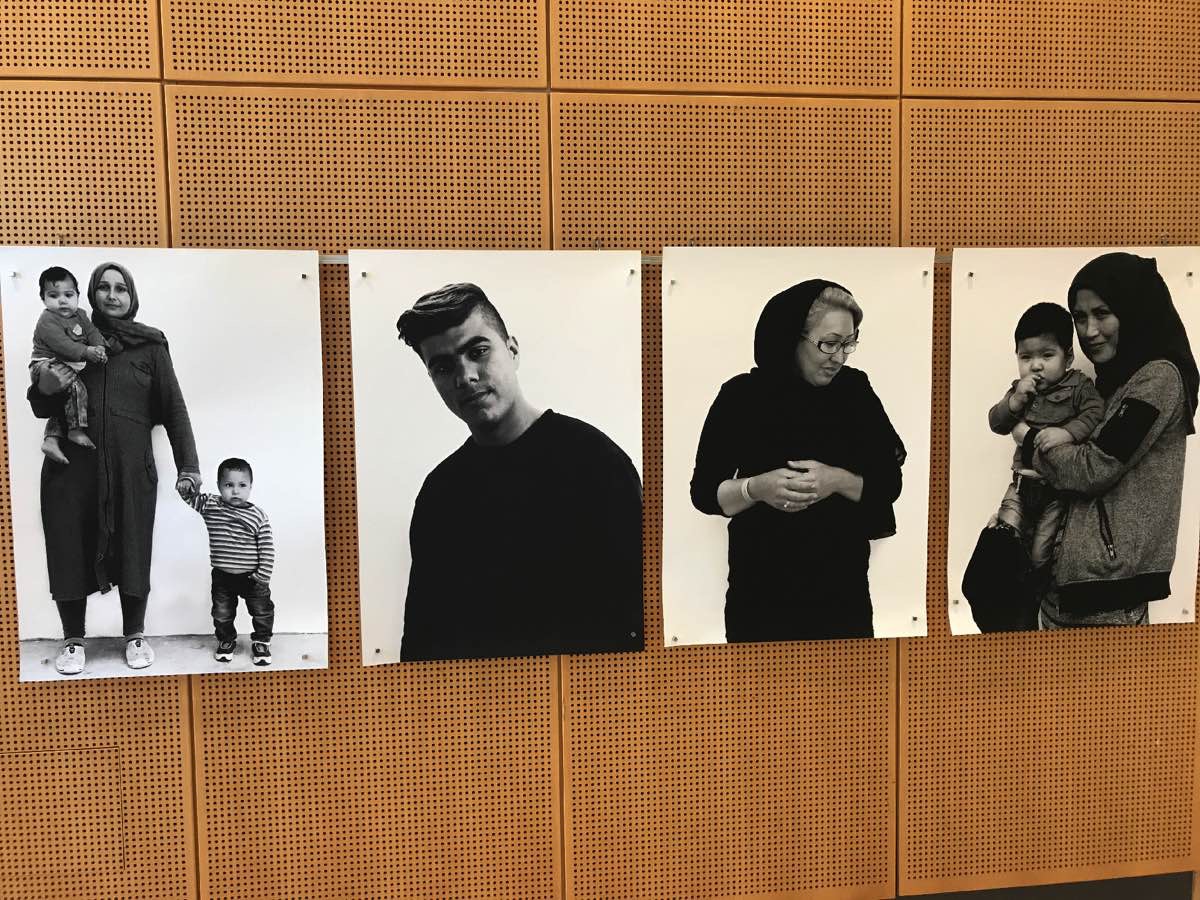A DAY AT LAKE OHRID
A conference or rather roundtable organized by the University of Tetova (Macedonia) together with the University of Antwerp in Struga brought me – together with the director of the International Institute for Peace (Vienna) – to that city at the Macedonian shore of Lake Ohrid. The title „Regional Rivalries and Security of the Western Balkans“ made it clear that besides EU and NATO also others are competing for the attention of the Balkan countries: Russia and Turkey.
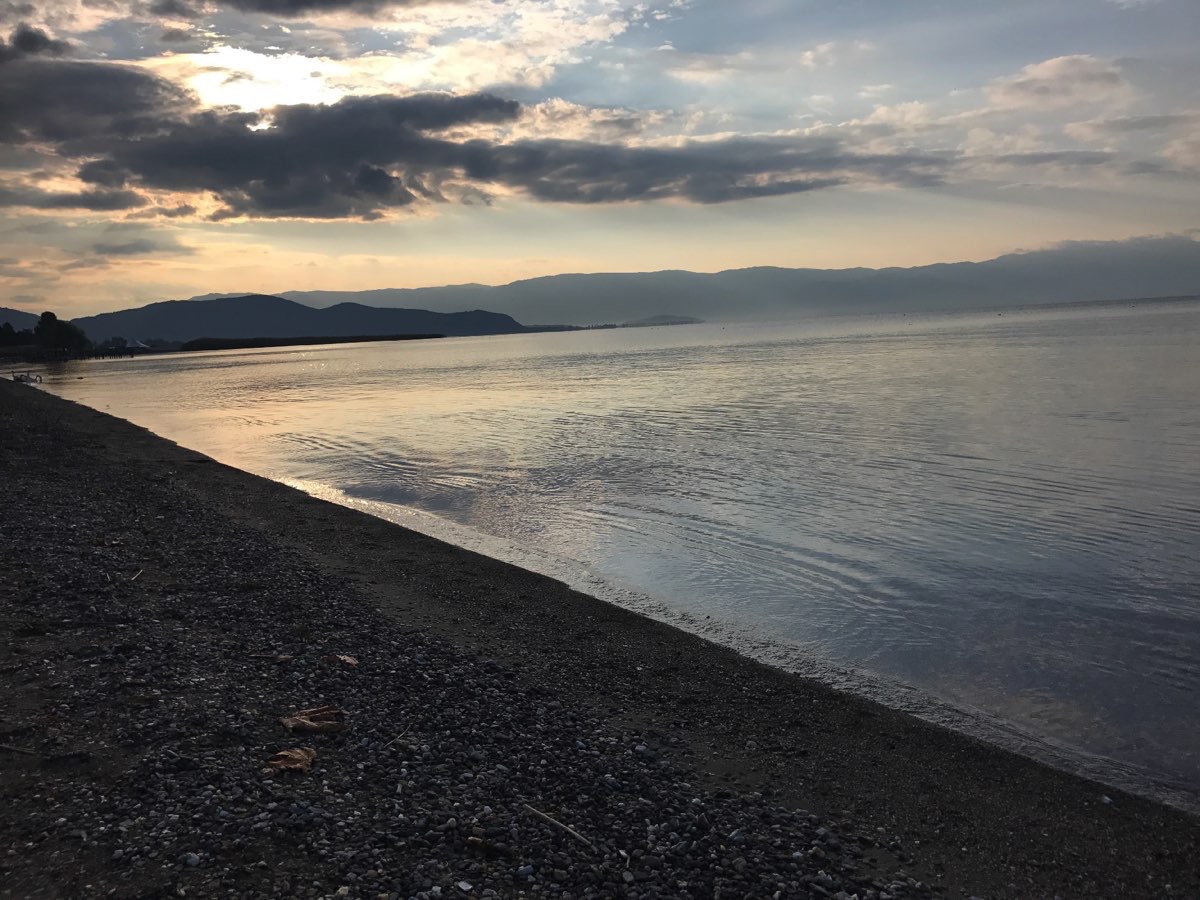
A new geopolitical environment
I introduced my intervention with underlining the difference to the times when I started to deal with the Western Balkans about twenty years ago in the framework of my engagement in the European Parliament. The focus was primarily one of and by Europe and the US, partly in the framework of NATO. Russia was engaged but not very actively. In the mean time Russia has stepped up its activities especially in the media sector. And Turkey is especially active in the different Muslim communities. But both are confronted with criticism by part of the Balkan societies. Not even all Muslims are happy about Erdogan’s one sided intervention in the internal affairs of the respective countries. But on the other hand he has won some followers, who began to be critically towards the EU which is seen as hypocritical concerning the accession process of the countries of the Western Balkans and(!) Turkey.
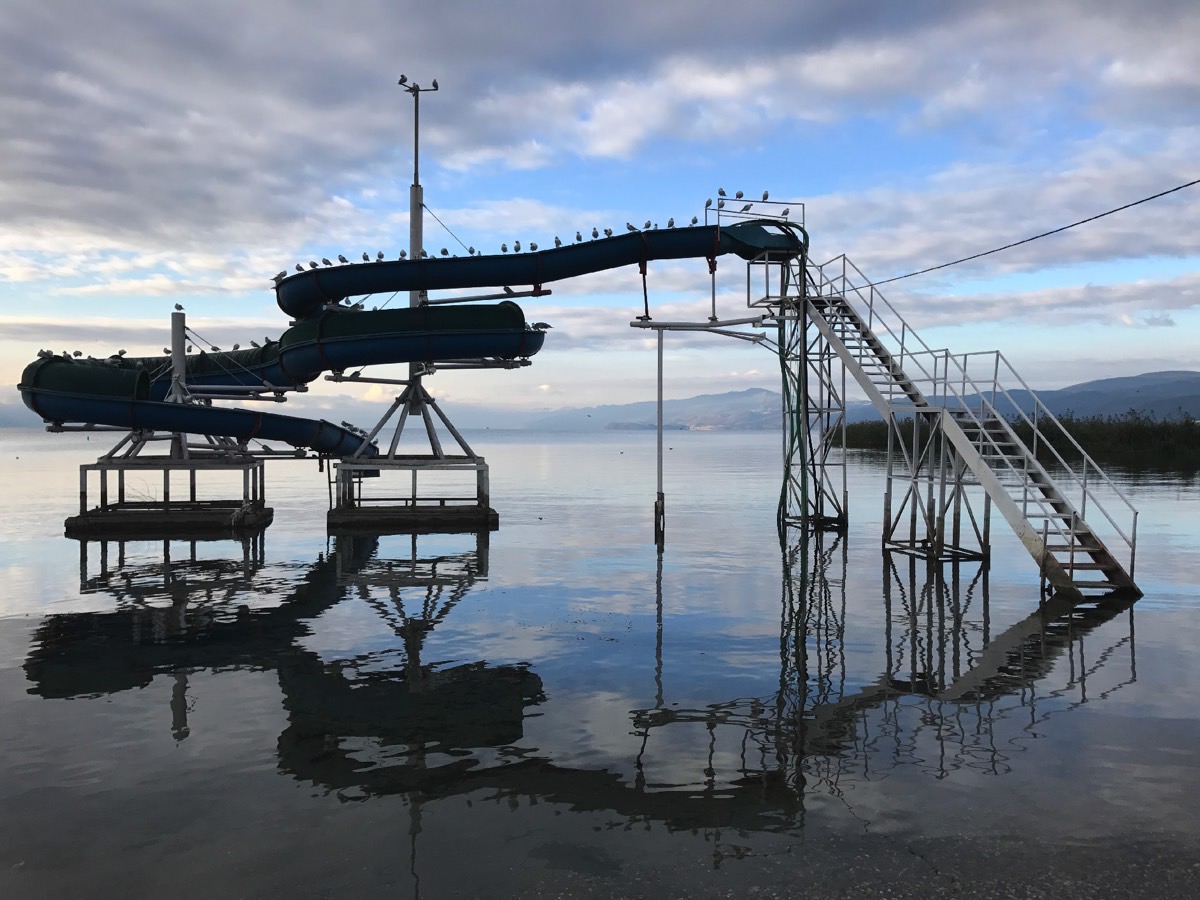
Russia on the other hand is primarily active in Serbia and other Christian-Orthodox communities. This certainly is the case also in Macedonia and of course in the Serb part of Bosnia-Herzegovina, the Republika Srbska. In principal the activities of Turkey and Russia are oriented to different communities, but nevertheless they are also starting to draw their attention to the „other“ sides. Partly they want to gain influence, partly they want to spoil the efforts of the EU. They cannot really offer much to the countries of the Western Balkans. They are neither modernizers of the economy and society nor can they offer democratic principles of governance. And out of this reason a close cooperation with them would be good and reasonable but is not feasible – not for the time being.
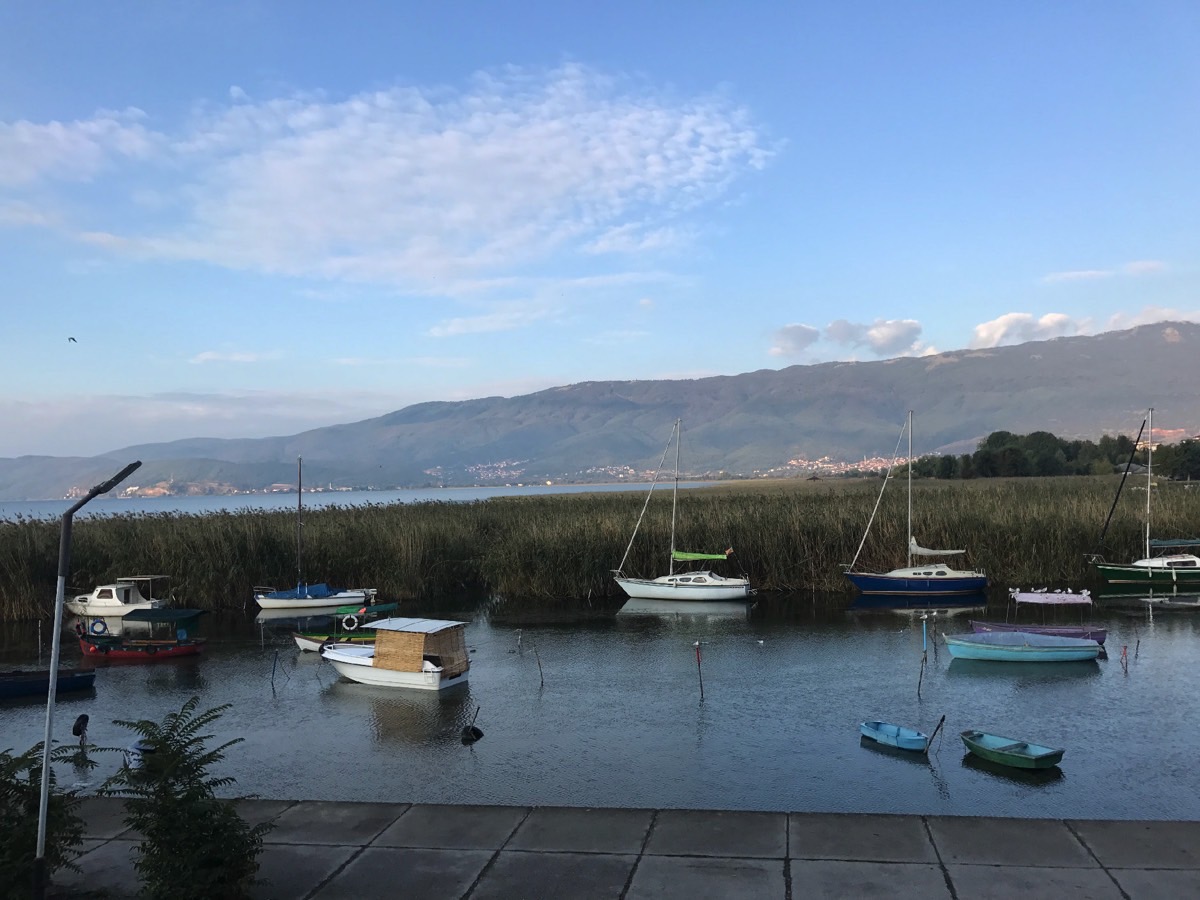
There are always alternatives
Nevertheless the EU should not just neglect the possible gains of these two rival powers in the cultural field and minds of Balkan citizens. And in this respect it will be necessary to openly discuss the alternatives to future EU membership. The leaning towards the authoritarian system in Russia of President Putin or towards the authoritarian governance of President Erdogan must be confronted not just with rejection but with an open analysis. „There is no alternative to the EU“ is never a good strategy to convince citizens of the „paradise EU“. There are alternatives but neither Russia nor Turkey can offer what the EU – with all its deficiencies – can offer. But one should not rely on this evaluation alone, the EU must play a more active role in the Western Balkans.
Some experts in the region plead for a quick accession of all the countries of the region in a package, a Balkans Big Bang. Also this is an alternative to the present slow way of accession. But many countries or rather all of them have not done their job of necessary reforms yet. Of course one could think about a differentiated membership where obligations and rights are not fully implemented. So countries of the Western Balkans community could all join quickly but their rights – from voting rights to financial benefits – would only be fully established if and when they would fulfill all the requirements of full membership. But that „variable geometry“ would create many difficulties of decision-making. And one cannot expect a wide support for such a complicated Big Bang. Nevertheless a thinking „out of the box“ overcoming the present stalemate is necessary to reduce the rising frustration in the region.
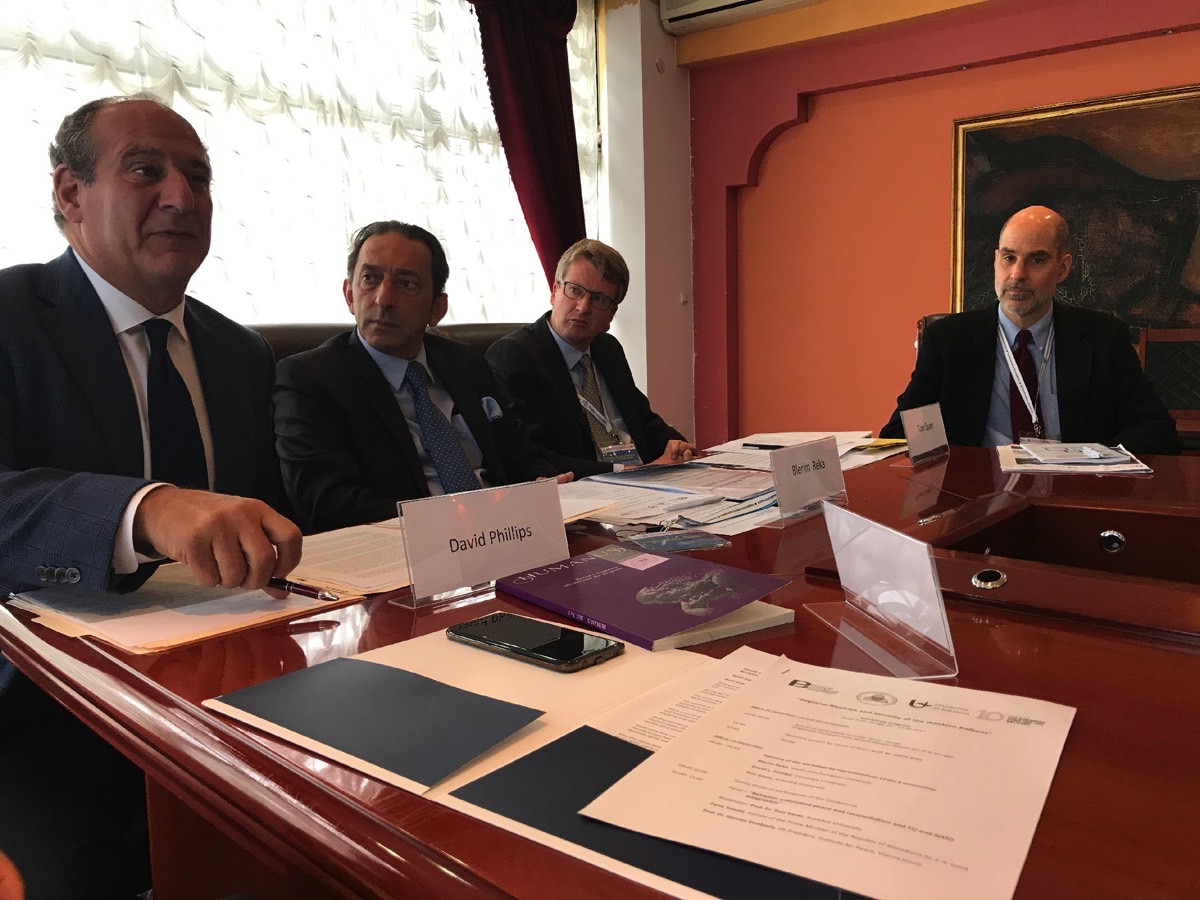
An EU- Western Balkans Security Community
One has to think about a step forward for the region as a whole in connection with the EU integration. The proposed and planned common market of the Western Balkan countries is a necessary step for mutual understanding and cooperation in the region itself. But what is needed is a stronger link to the EU beyond the individual accession talks. The most urgent issue which is at the moment affecting all European countries and their populations is the security question. For the military side NATO is responsible. And it is fully understandable that all countries concerned – or at least the governments – want to proceed with integration into NATO. Serbia is the exemption – due to understandable reasons.
But there are many issue of non-military security. Cyber security, the radicalization of a -small- part of the Muslim youth, trafficking of persons, weapons and drugs etc. are highly critical issues where EU countries and the countries of the Western Balkans should work closely together. And in this respect there should also be strong coordination of the border policy and protection. And that includes the refugee issue. Not the refugees as such creates insecurity, but some use the refugee trails for „importing“ radical philosophies and individuals. And here we have to be vigilant.
Such an institutional cooperation between the EU and the Western Balkans – with a common secretariat – would also reduce the fears and anxieties of EU citizens. They often fear that accession of new countries will import insecurity instead of exporting security. A careful and specifically targeted security policy is supporting the accession process and a human policy concerning forced migration.
Any close security cooperation before and parallel to the accession process would not only be a clear positive signal towards the Western Balkans but also a signal to the EU citizens of the awareness of EU politicians of security concerns inside the EU. Leaving the countries of the Western Balkans in an empty void or leaving them to be strongly influenced by Russia and/or Turkey (or Qatar etc.) would be a security risk for Europe. So it is in Europe’s interest to strengthen the security links with our neighbors in the Balkans.
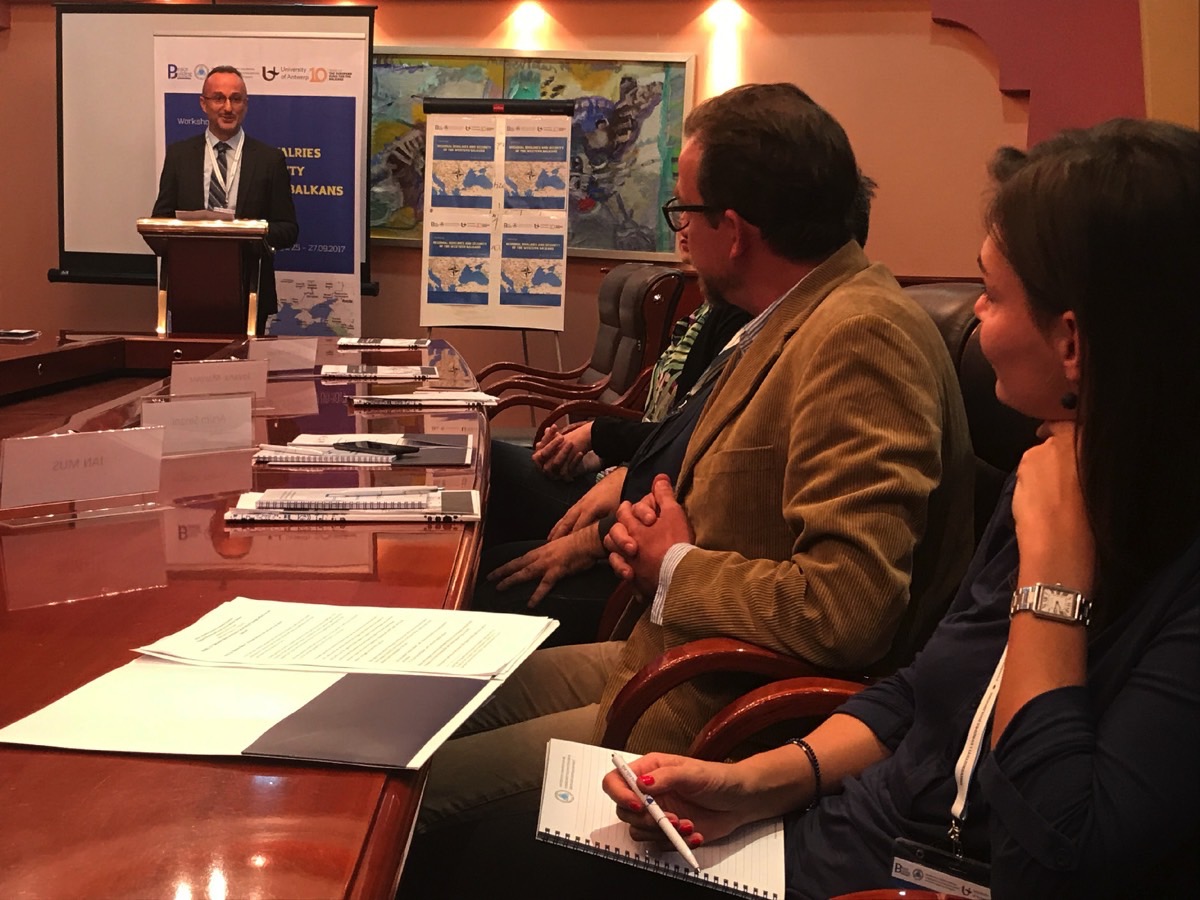
Addendum: EUROPEAN REFUGEE-POLICY AND THE ISSUE OF
SOLIDARITY
(10 points as basis for a keynote speech)
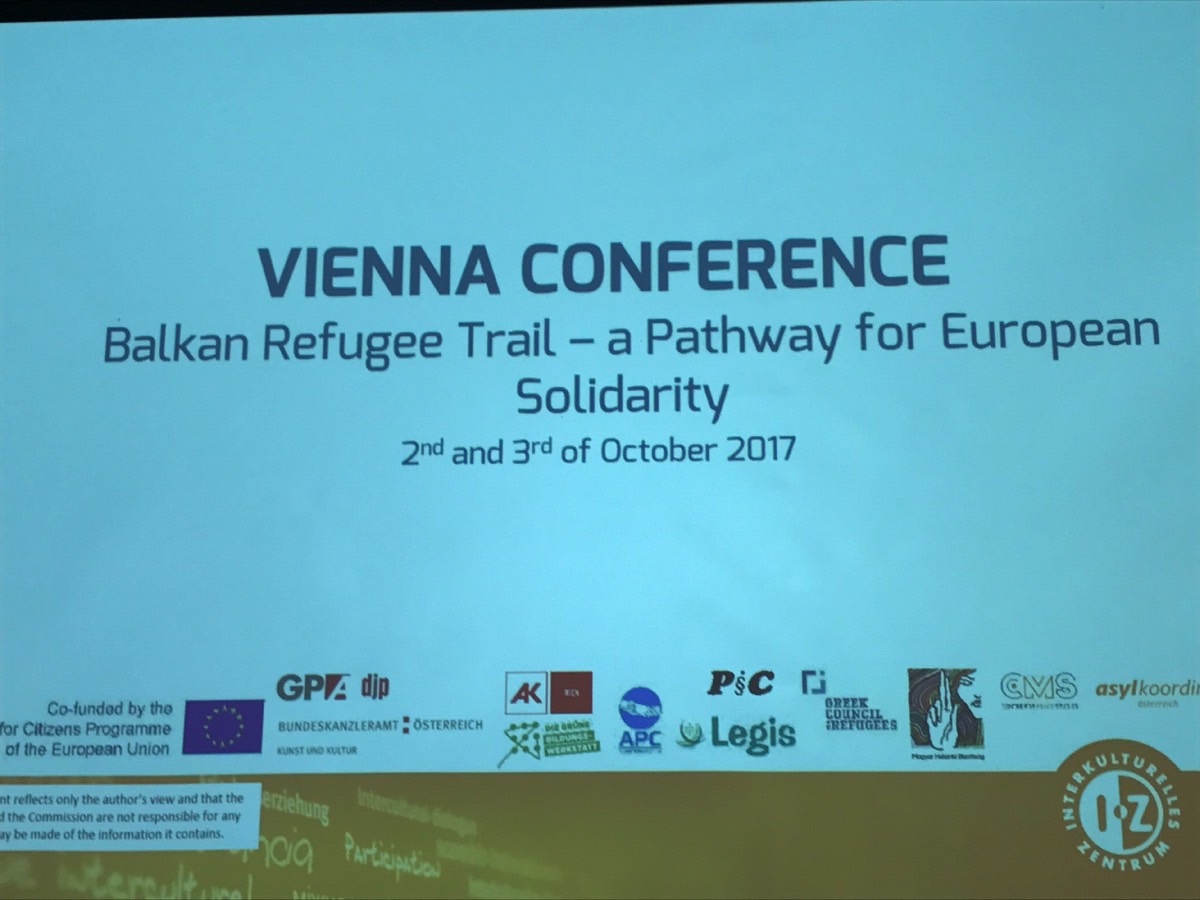
1) The European Union was built to overcome ethnic and national conflicts, wars and destruction inside the European core. The prevention did not concern primarily „outside“ conflicts but more and more migration and asylum issues have been tackled with. Nevertheless massive forced migration was not foreseen and the EU was not prepared to deal with it. The Dublin regulation with its emphasis given to asylum obligations of the country of first entry is proof of that restrictive attitude.
2) Already during the „Yugoslav wars“ the refugee issue was not a real European issue but concerned the „usual“ countries: Austria, Germany and Sweden. Discussions about a mechanism of solidarity always led to an impasse by those countries who were not affected at the time.
3) There is a gross contradiction between some countries outside the EU but also inside who contribute to forced migration on the one hand and countries who are willing to accept refugees on the other hand (for example France versus Germany)
4) Europe as a whole suffers by having big differences in economic and social development and cohesion. Also some countries – especially in the West are used to „multicultural“ structures in their society others are not, especially in the East. Some of these countries or regions ( see the recent election results in Eastern Germany!) feel themselves neglected, threatened by newcomers – even if they do not yet affect their daily life – and open to nationalistic tendencies.
5) This discrepancies are an obstacle against strong solidarity, especially solidarity in „kind“ by some member countries, that means accepting an adequate number of refugees. Unfortunately there was no decision to create a „Refugees Solidarity Fund“. Into this fund all the countries should pay according to their economic strength and all countries taking care of refugees could get support from it. That would slowly lead also reluctant countries also to accepting refugees.
6) The countries of the Western Balkans are part of the weaker and less multicultural Europe. Nevertheless many governments and parts of the civil society played a positive role, at least after it was clear that the refugees would transit towards Austria, Germany etc. And of course the EU-Turkey agreement helped to reduce the numbers of refugees. The Balkan rout is not totally closed but the number of people trying to pass through the Balkan countries is very limited. But that does not mean that there’s is no hardship and suffering.
7) In the Western Balkans but also other weaker parts of Europe the fears concerning security risks are specially high. These fears and anxieties have to be addressed. Concerning the Western Balkans I have recently proposed to establish a „European Security Community“ where the EU together(!) with the countries of the Western Balkans would address all non-military security issues from radicalization of the youth to effective border control and fight against trafficking of human beings, weapons and drugs.
8) The EU must redirect its policies concerned forced migration towards a stronger engagement in the countries of origin and of transit. Resilience – to use the newest fashion word of political science – must start with stronger cooperation to prevent conflicts and create conditions for sustainable development. This concerns especially a new EU- Africa strategy.
9) Migration policy must always be connected with an engaged integration policy. Inclusion into society is an issue for all minorities including refugees. Europe should show many good practices for such a policy not only to other European countries but also to the outside. Successful integration would also increase the readiness to accept newcomers including forced migrants by concerned citizens.
10) Integration into the EU should also clearly stay on the agenda of the Western Balkans – EU relations. But one should remain realistic, it will take time. But more cooperation from economic development to dealing with the recent past in schools etc. between the countries concerned and more cooperation with the EU concerning migration and inclusion of citizens and migrants would be helpful.
